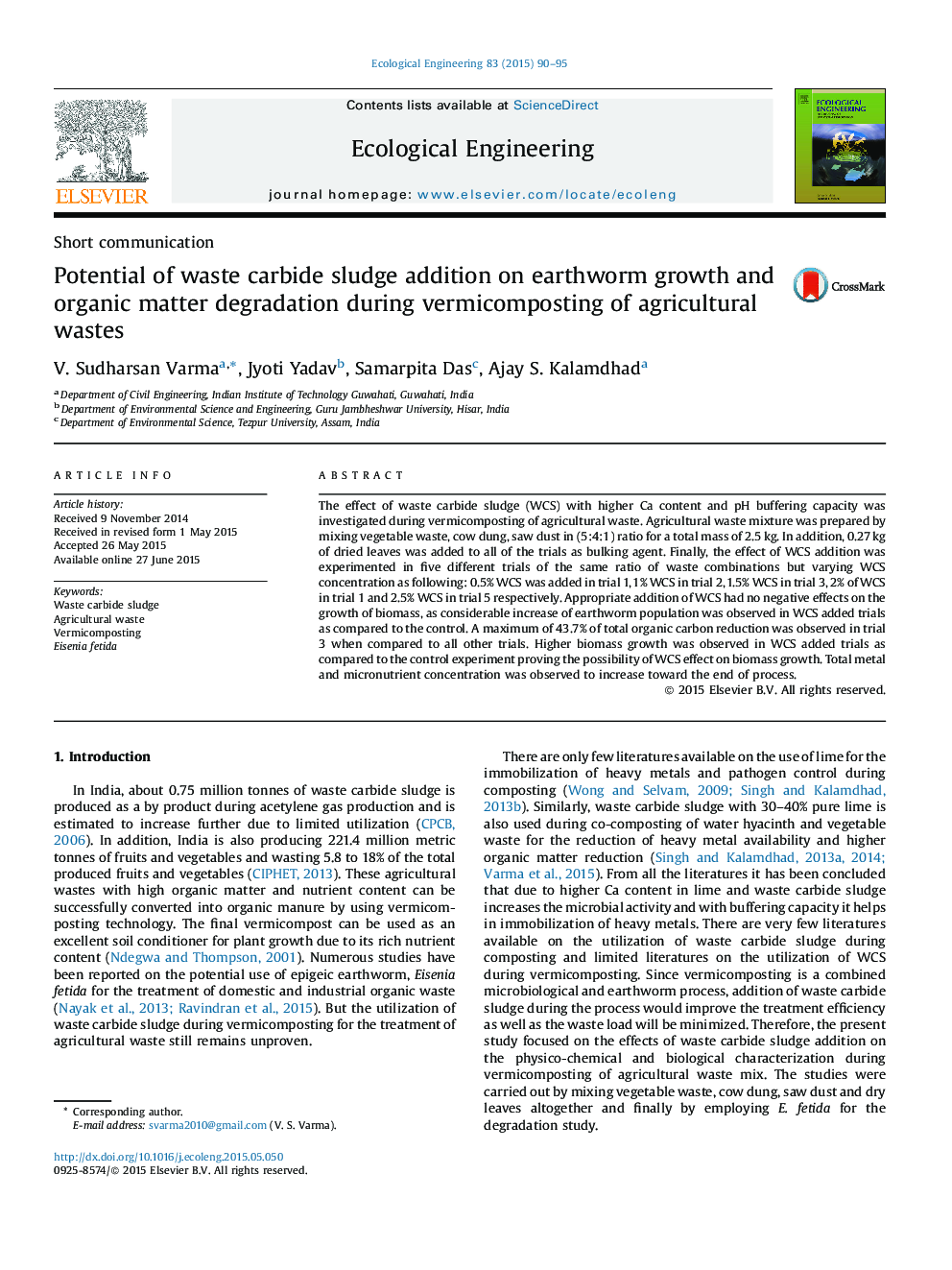| Article ID | Journal | Published Year | Pages | File Type |
|---|---|---|---|---|
| 4388853 | Ecological Engineering | 2015 | 6 Pages |
•First report on the utilization of waste carbide sludge (WCS) during vermicomposting technology.•Effects of WCS addition on earthworm growth and organic matter degradation.•Improved treatment efficiency.•Stabilized and nutrient rich end product within shorter time period.
The effect of waste carbide sludge (WCS) with higher Ca content and pH buffering capacity was investigated during vermicomposting of agricultural waste. Agricultural waste mixture was prepared by mixing vegetable waste, cow dung, saw dust in (5:4:1) ratio for a total mass of 2.5 kg. In addition, 0.27 kg of dried leaves was added to all of the trials as bulking agent. Finally, the effect of WCS addition was experimented in five different trials of the same ratio of waste combinations but varying WCS concentration as following: 0.5% WCS was added in trial 1, 1% WCS in trial 2, 1.5% WCS in trial 3, 2% of WCS in trial 1 and 2.5% WCS in trial 5 respectively. Appropriate addition of WCS had no negative effects on the growth of biomass, as considerable increase of earthworm population was observed in WCS added trials as compared to the control. A maximum of 43.7% of total organic carbon reduction was observed in trial 3 when compared to all other trials. Higher biomass growth was observed in WCS added trials as compared to the control experiment proving the possibility of WCS effect on biomass growth. Total metal and micronutrient concentration was observed to increase toward the end of process.
